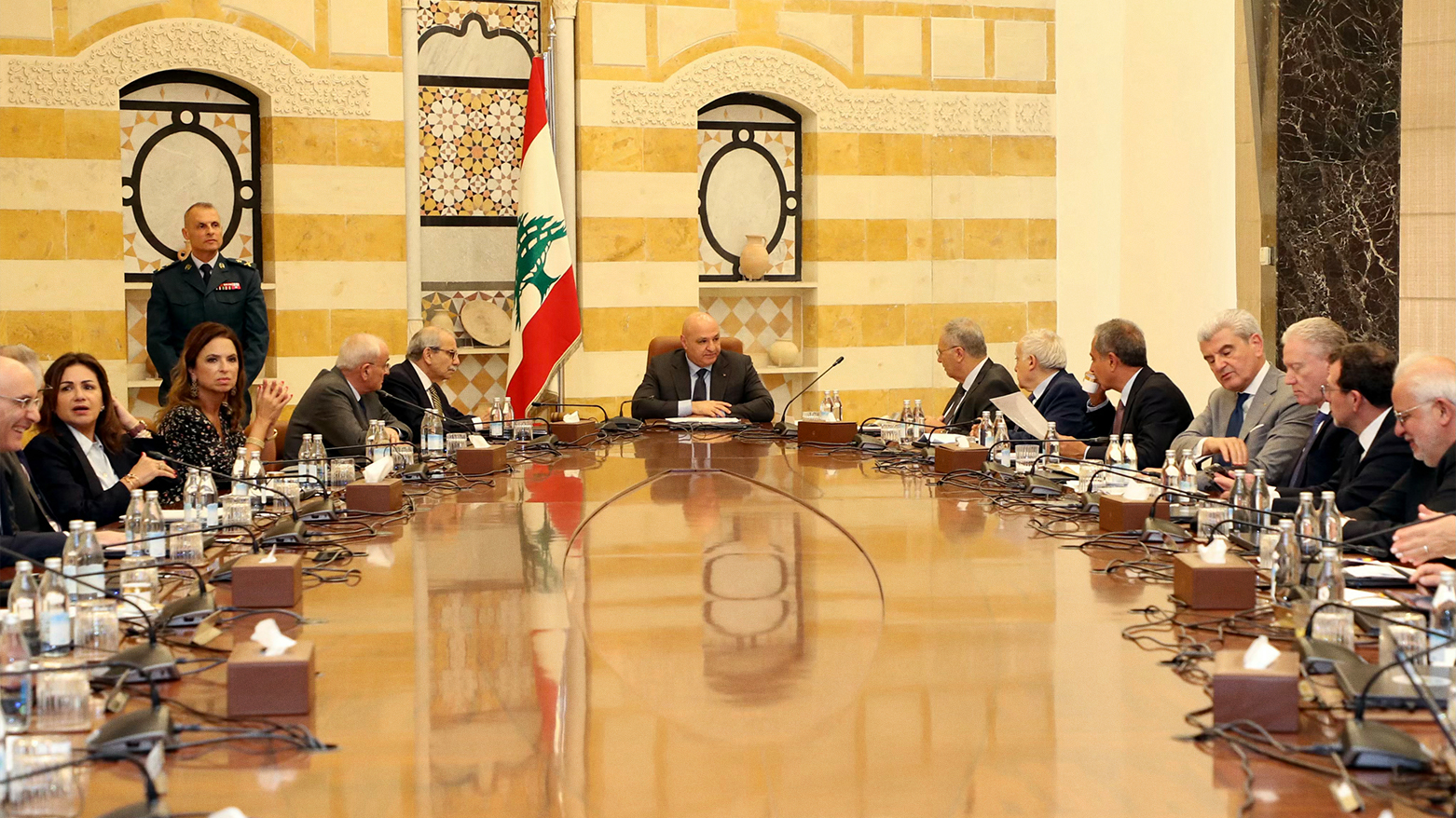Lebanon Slams Iran for Meddling After Hezbollah Disarmament Remarks
Lebanese officials denounced Iran’s “incitement” after Tehran dismissed a state decision to disarm Hezbollah as doomed to fail. The backlash came as Shiite ministers walked out of a cabinet session discussing the U.S.-backed disarmament plan.

ERBIL (Kurdistan24) - Lebanese officials expressed outrage on Thursday over what they termed blatant meddling and incitement from Tehran, after Iran's Foreign Minister declared that Beirut's historic decision to disarm Hezbollah is doomed to fail. According to reports from Asharq Al Awsat, the remarks by Abbas Araghchi sparked a wave of condemnation across Lebanon, prompting calls for a formal complaint to the United Nations Security Council and fueling fears that Iran’s position could empower Hezbollah to rebel against the state and give Israel a pretext for a new war.
The diplomatic firestorm led Lebanese Foreign Minister Youssef Rajji to task his ministry with summoning the Iranian ambassador. In a sharply worded statement cited by the source, Rajji slammed Araghchi for commenting on Lebanese internal affairs “that do not concern the Islamic Republic in any way, shape or form.”
He asserted that the remarks “violate Lebanon’s sovereignty, unity and stability and are interference in its internal affairs and sovereign decisions.” Rajji underscored the government’s unwavering commitment to its “historic decision over limiting the possession of weapons to the state before the end of the year,” declaring to the international community that “the decision is final and decisive and there can be no backing down from it.”
The sentiment was echoed by other political figures. Ghayath Yazbeck, a Member of Parliament with the Lebanese Forces’ Strong Republic bloc, told Asharq Al-Awsat that the Iranian statements represented “a complete violation of the dignity of a sovereign and independent state.”
He condemned Iran’s “clear destructive role in Lebanon” and argued that Araghchi’s remarks are “just as bad as the Israeli attacks on Lebanon.” Similarly, Democratic Gathering MP Faisal al-Sayegh described the comments to Asharq Al-Awsat as “the ultimate form of meddling in Lebanon’s internal affairs,” which he said “create a divide among the Lebanese people.”
This external pressure from Iran comes as the Lebanese government faces a severe internal crisis over the very same issue.
Asharq Al Awsat also reported that a critical cabinet meeting was adjourned on Thursday after four Shiite ministers, including members from Hezbollah's parliamentary bloc and the allied Amal party, walked out in protest of the disarmament plan.
Independent Shiite parliamentarian Fadi Makki, who also withdrew, said on the social media platform X that he “couldn’t bear the responsibility of making such a significant decision in the absence of a key component from the discussion.” The cabinet had approved the objectives of a U.S.-backed proposal for disarming Hezbollah, but did not discuss its full details.
Hezbollah itself has rejected the government's move, accusing it of caving to U.S. and Israeli pressure and vowing to “treat this decision as if it does not exist.” According to Asharq Al Awsat, Hezbollah officials have stated they will not discuss relinquishing their arsenal until Israel withdraws from five occupied hills and ceases its airstrikes.
Meanwhile, the United States has lauded the Lebanese government's initiative. U.S. envoy Tom Barrack congratulated Lebanese leaders for what he called the "historic, bold, and correct decision" to begin implementing a November ceasefire that stipulates weapons be restricted to state agencies. On X, Barrack stated, “This week's cabinet resolutions finally put into motion the 'One Nation, One Army' solution for Lebanon. We stand behind the Lebanese people.”
Congratulations to Lebanese President Aoun @lbpresidency, Prime Minister @nawafsalam, and the Council of Ministers for making the historic, bold, and correct decision this week to begin fully implementing the November 2024 Cessation of Hostilities agreement, UN Security Council…
— Ambassador Tom Barrack (@USAMBTurkiye) August 7, 2025
MP Faisal al-Sayegh stressed that limiting weapons to the state is the foundation of building a functional country and would help Lebanon secure international guarantees against future Israeli attacks. He told Asharq Al Awsat that he hoped Iran would “reconsider” its positions and play a “positive and helpful role,” which he said cannot happen until the state has a monopoly over arms and the decisions of war and peace.
